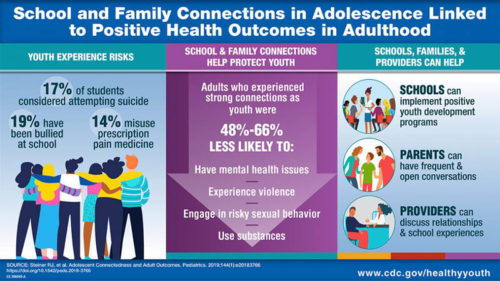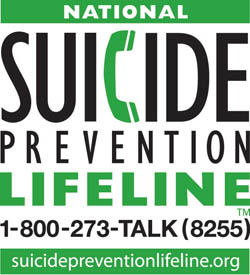Suicide is the leading cause of death among teens and the incidents of suicide and self-harm are rising. According to the Centers for Disease Control and Prevention, the suicide rate among youths aged 14–18 years increased by 61.7% from 2009–2018. The COVID-19 crisis has accelerated this tragic trend.
It is a very difficult time to be a teen. They face bullying and cyberbullying and are often fearful of not fitting in and making friends. However, according to Litza Bodden, Licensed Professional Counselor Supervisor and GISD Responsive Services Counselor, parents, grandparents and other family members can help teens through these difficulties.
“Parents and family can help navigate all this by truly being a listening ear, not minimizing their thoughts or feelings, and having an open dialogue. Acknowledge their feelings and validate their thoughts,” Bodden said.
As if it wasn’t difficult enough, adding COVID-19 to the mix has caused many more problems. The fear, isolation/quarantine, cancellation of events such as graduations, sporting events and dances has exacerbated the problems. These cancellations are missed opportunities for teens to feel connected, which is vital to their well-being. Bodden shared some prevention ideas to help teens who are experiencing difficulties.
“Parents can have their child’s pediatrician evaluate their child for depression or anxiety. They can also get their teens outside counseling support in addition to what they can get at school,” she said. “And parents can also create a safe space for their child to express themselves.”
According to Bodden, parents should look out for warning signs like:
- Talk about suicide or death
- Talk about feeling hopeless or guilty
- Isolating themselves from family and friends to whom they normally speak
- Giving away important possessions
- Losing interest in activities that they enjoy and in school and sports
- Having trouble sleeping and changing eating habits
- Engaging in risky behavior
- Drawing or writing about death, loss and separation
Additionally, Bodden shared some ideas for parents who see troubling behaviors in their teens.
“I believe the most important thing a parent can do is to try to communicate their concern, support and love with their child,” she said. “If a child confides in their parent, the parent should show that they take those concerns seriously. Do not minimize or ignore what your teen is going through.”
She added that if your child is uncomfortable speaking with you, provide a neutral person such as a school counselor, coach, clergy member or relative.
If a parent finds out that their child is considering suicide, they should get them help immediately by taking them to a hospital for a risk assessment or calling the suicide hotline – 800-273-8255 or by speaking to a professional.
Connectedness is an important protective factor for youth that can reduce the likelihood of a variety of health risk behaviors. Connectedness refers to a sense of being cared for, supported and belonging and can be centered on feeling connected to school, family or other important people and organizations in their lives. Youth who feel connected at school and home are less likely to experience negative health outcomes related to sexual risk, substance use, violence and mental health.

Information provided by Garland ISD.
Litza Bodden serves Carver, Centerville and Handley elementary schools. In addition, she serves Classical Center at Brandenburg Middle School and Lakeview Centennial High School.
Sources: https://www.cdc.gov/healthyyouth/protective, https://rachelschallenge.org/.
Suicide Prevention Lifeline – 800-273-TALK (8255)


